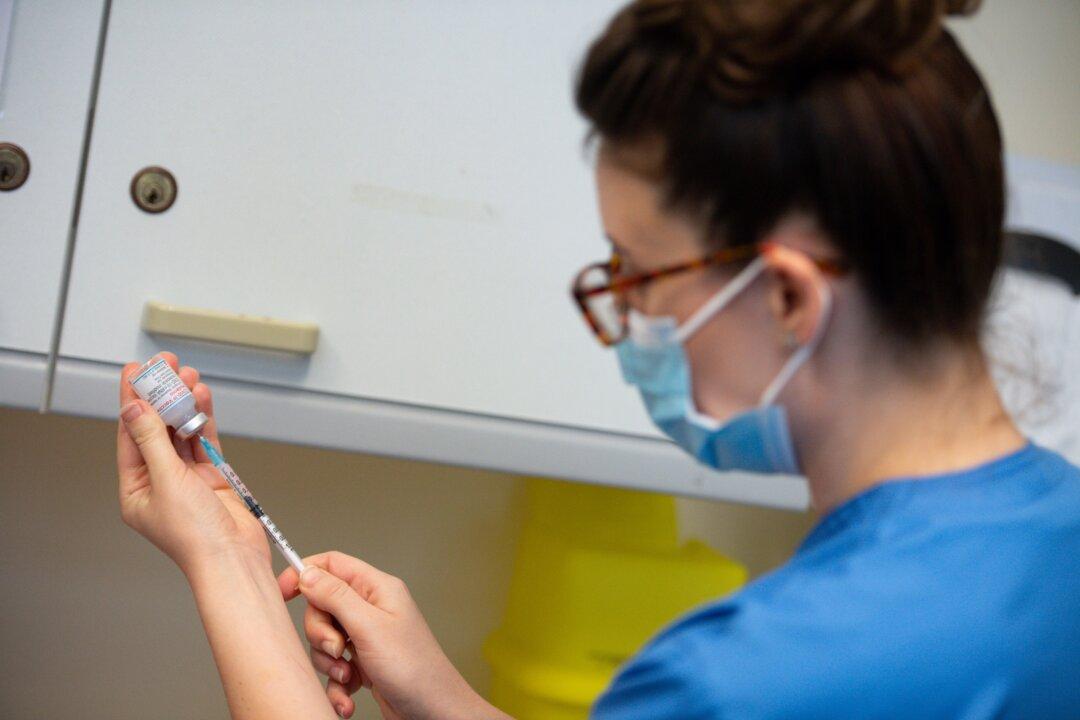Vaccinated people infected with the Delta variant of the CCP (Chinese Communist Party) virus, which causes COVID-19, may be as infectious as their unvaccinated counterparts, early analysis from Public Health England (PHE) suggests.
This coincides with a recent study from the United States, where similar results were observed in Wisconsin.





